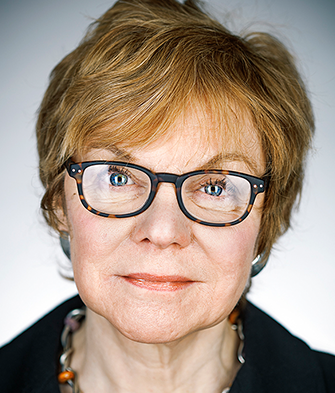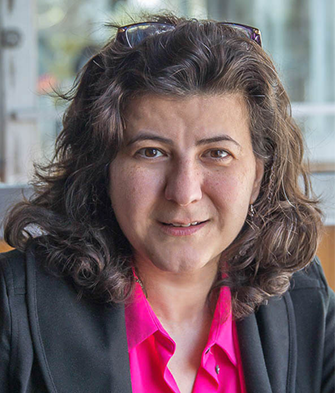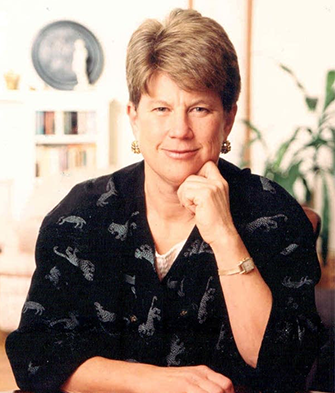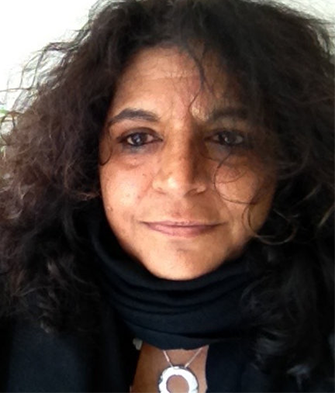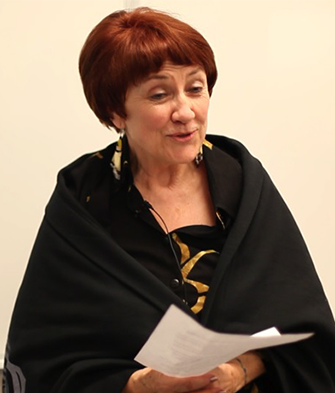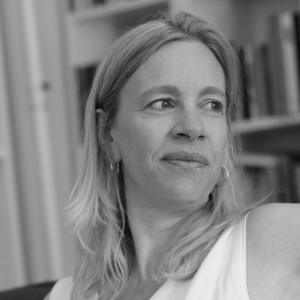 Dominique Russell, Professor of Practice
Dominique Russell, Professor of Practice
September 2023 – April 2024
Dominique Russell is a community organizer, housing activist, teacher and writer. She founded Friends of Kensington Market in 2013, mounting a successful city-wide campaign to stop a Walmart on the edge of the market. Under her leadership, FOKM intervened on development files, offered de-escalation and naloxone training, helped organize and support tenants facing displacement and campaigned against ghost hotels. In 2015, Dominique led a working group that set the parameters to establish a community land trust and was Kensington Market Community Land Trust’s founding board chair. She is the KMCLT’s current co-chair, along with Kevin Barrett. She also serves on the board of directors for the Canadian Network of Community Land Trusts. She has given numerous talks, workshops and tours on the subjects of development, gentrification and activism in Kensington Market. She holds a Ph.D. in Hispanic Studies from the University of Toronto and has taught at York, U of T, Western and more recently, Brock University. Her publications include Rape in Art Cinema (Bloomsbury, 2012, 2010), Instructions for Dreamers (Swimmers Group, 2018) and Kensington, I Remember (Russell Creek Press, 2023; 2017; 2013).
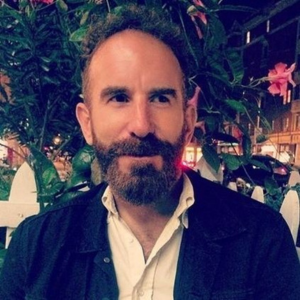 Ted Rutland, Professor of Practice
Ted Rutland, Professor of Practice
September 2023 – April 2024
Ted Rutland is an Associate Professor in the Department of Geography, Planning, and Environment at Concordia University. An interdisciplinary urban scholar, his work focuses on the racial politics of urban policing, planning, and governance in Canadian cities. His first book, Displacing Blackness: Planning, Power, and Race in Twentieth-Century Halifax (University of Toronto Press, 2018), brought together ideas from Black studies and urban studies to explore how anti-Black conceptions of the human have been central to modern planning’s efforts to protect and improve human life from the late nineteenth century to the present. His current research focuses on how, beginning in the mid-1970s, processes of capitalist and state restructuring created the conditions for the rise of the “New Right” and the far right in Canadian cities and an eventual carceral turn in urban politics exemplified by a multi-faceted war on street gangs in Montreal and Toronto. Examining the war on gangs, this research suggests, provides an entry point to broader changes in urban policing, planning, and governance that he terms “counter-insurgency urbanism.” Parts of this research have been published in Environment and Planning D, Geoforum, and the book (co-authored with former gang leader, Maxime Aurélien) Out to Defend Ourselves: A History of Montreal’s First Haitian Street Gangs (Fernwood Press, 2023).
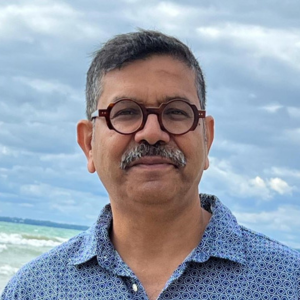 Kundan Kumar, Professor of Practice
Kundan Kumar, Professor of Practice
September 2023 – April 2024
Kundan Kumar has worked for two and a half decades as a scholar-practitioner, activist, and advocate for environmental justice, territorial and land rights of Indigenous Peoples and other marginalised communities, and community-led conservation. Working at local to global scales, his career includes work with grassroots initiatives, experience with development banking and planning, and regional and global level engagement with land tenure issues, conservation, and climate change with a focus on equity, justice and mobilisation of marginalised peoples. He currently advises the Indigenous Unit at FAO (UN’s Food and Agricultural Organization) as a Climate and Conservation Expert, supporting the unit’s research and advocacy efforts on the importance of Indigenous Peoples’ mobilities, mobile livelihoods, and collective rights for biodiversity conservation. Prior to this, from 2014-2021 he worked with the Rights & Resources Initiative (RRI) as the Director of Asia Programs, leading RRI’s policy and grassroots interventions relating to Indigenous Peoples’ collective rights over land and forests in Asia. From 2009-2014, he worked the Department of Geography & Planning and the Faculty of Forestry at the University of Toronto as an Assistant Professor (CLTA). He completed his PhD in Resource Development from Michigan State University in 2010, after an extensive career in development banking and work with environmental justice movements in India. Given the intertwined crisis of capitalism and planetary systems, Kundan’s recent engagement with Indigenous Peoples and other marginalised communities focuses on climate and environmental justice. Kundan has worked on how the proposed “nature-based solutions (NBS)” such as 30X30 (setting aside 30% of geographical area for conservation by 2030), net zero and other initiatives for climate mitigation threaten to create new enclosures and intensify dispossession, and marginalisation of vulnerable communities. As climate crises intensify, the risk of harm to vulnerable peoples from justice-agnostic planning for climate mitigation and adaptation are likely to increase, as heightened sense of crisis is used to undermine democracy and justice. As a Bousfield Fellow, Kundan would continue to focus on justice implications of various climate mitigation and adaptation initiatives, especially Nature-Based solutions, seeking to improve connections between practice and theory of climate and environmental justice. In addition, Kundan will work on pathways for increased attention on Climate and Environmental Justice in Planning curricula.
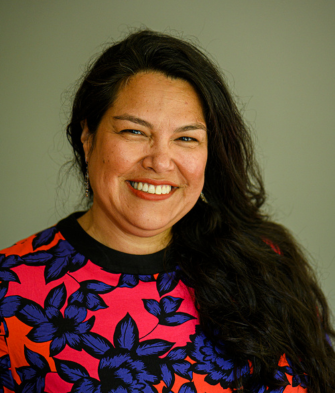 Adriana Beemans, Professor of Practice
Adriana Beemans, Professor of Practice
January – June 2023
Adriana Beemans works with non-profit leaders, community organizers and neighbourhood residents to address social and economic inequities in Toronto and develop strategies, programs, and local assets to respond to these challenges. In 2013, Adriana joined the Metcalf Foundation, a private foundation engaged in helping Canadians imagine and build a just, healthy, and creative society, where she leads the Inclusive Local Economies program. As Program Director, she works with and invests in the non-profit and community-based sector to advance innovative ideas and compelling approaches for workforce development, decent work, community wealth and capacity building. Previously Adriana was Director of Programs & Services at Working Women Community Centre, supporting the settlement and integration of newcomer and immigrant women, and leading the establishment of the Victoria Park Community Hub. Adriana moved to Toronto to do her MA in Political Science and Environmental Studies at U of T. Upon completion she began working with Toronto Community Housing, supporting innovative community development change management processes including participatory budgeting, anti-racism study circles, resident engagement, tenant elections, and resident-led grant-making. Adriana started her career thinking globally- with a BA in Comparative Development from Trent University; she worked with the Aga Khan Foundation in Pakistan and UN-Habitat in Afghanistan, but was motivated in 2001 to return to Canada, to explore, understand and engage in community development praxis in urban cities like Toronto.
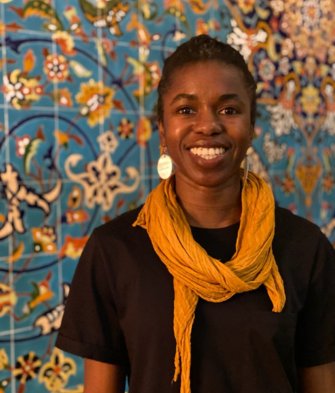 Abigail Moriah, Professor of Practice
Abigail Moriah, Professor of Practice
September – December 2022
Abigail Moriah is a connector, facilitator and planner specializing in affordable housing and equity in development. She has diverse experience in the nonprofit, community and public sectors, which has shaped how she reflects on and engages in urban planning practice. Her experiences have inspired her to pursue a planning approach that builds bridges across practitioners, scholars and communities. Her practice focuses on Black planning - Black experiences and engagement in planning, housing development and the creation of community space, and community-centred real estate development. In 2018, Abigail launched the Black Planning Project, which seeks to advance knowledge and highlight Black perspectives in planning through collaborative research. Projects include Tracking Historical Black displacement in Toronto with ULI Toronto and Buying while Black: Barriers to Black Homeownership. She is also co-director of a 3 year SSHRC grant: Black Experiences with Planning in Canada. Abigail is excited to be part of teams that started MIIPOC (2019) - a mentorship initiative for Indigenous, Black and racialized emerging professionals in planning - and the Black Planners and Urbanists Association (2020), both which seek to connect, support and create access to the profession for racialized planners.
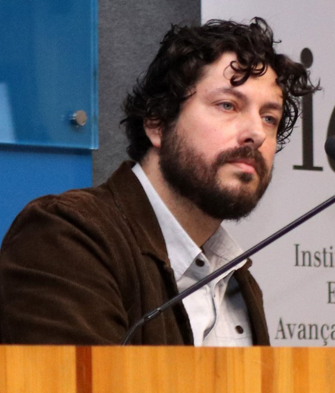 César Simoni Santos, Visiting Professor
César Simoni Santos, Visiting Professor
January – July 2023
César Simoni Santos is a Geographer and Professor in the Department of Geography at the University of São Paulo. He obtained the title of PhD in Human Geography in 2013, performing part of his research work linked to the Université Paris 3 - Sorbonne Nouvelle. Currently, César is appointed to the Graduate Program in Human Geography (PPGH) and is linked to the Urban Geography Lab (Labur). He is also part of the Critical Urban Theory Group at the Institute of Advanced Studies (IEA) at the University of São Paulo and the Critical Urban Geography Group (GESP) in Brazil. César is coordinator (leader) of the LIMIARES: Limites da Acumulação e Reprodução do espaço (Thresholds: Accumulation Limits and Space Reproduction) Research Group and coordinator of the academic agreement signed with the Geographischen Institut of the Christian-Albrechts-Universität zu Kiel, Germany. Furthermore, César is author of the book, The Urban Frontier: Urbanization, Industrialization and Real Estate Market in Brazil and one of the editors of the book, Critical Urban Geography: theory and methods (original titles in Portuguese). He is also author of articles and book chapters on the same subject (such as “The geophagic nature of financial dominance in the Brazilian real state market,” in Die Erde: Journal of the Geographical Society of Berlin; “Towards a Spatialized Utopia: Romanticism and Everyday Life in the Marxism of Henri Lefebvre,” in Brazilian Regional and Urban Studies Journal – RBEUR; “Henri Lefebvre and the Morphology of a Spatial Dialectic,” in The New Urban Condition: Criticism and Theory from Architecture and Urbanism, a Routledge volume; and “From a Place of Business to the City as a Business,” in The City as a Commodity).
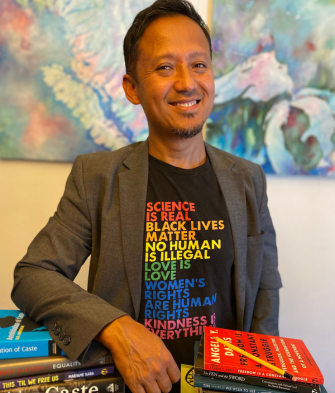 Yogendra Shakya, Professor of Practice
Yogendra Shakya, Professor of Practice
September 2022 – May 2023
Yogendra Shakya is an advocate-scholar passionate about advancing equity, community/neighborhood health, and participatory research grounded on decolonial/anti-imperialist justice. After getting his PhD in Geography from the University of Toronto, Yogendra worked as a Senior Research Scientist at a community health center (Access Alliance) for 14 years where he championed community-based research. He is currently the director of Global Equity Matters (GEM) Institute. Yogendra’s work focuses on genealogical critique and contest of root causes of systemic inequities including racism, poverty, precarious work and precarious immigration status. He has been actively involved in many advocacy campaigns such as 15 and Fairness, Decent Work and Health Network, Color of Poverty, and Right to Healthcare. As part of the Bousfield Professor of Practice, Yogendra will engage students to develop curricula on anti-imperialist planning and research praxis. The key goal of the curricula is to bring focus on the rich foundations of anti-imperialist scholarship and social movements from around the world, particularly those led by Black, Indigenous, Dalit, Queer/Trans, Anti-Ableist/Crip, and other “underclass” constituents (e.g. occupied groups like Palestinian and Tibetan communities). The curricula will explore two related questions: (i) how do we mobilize abolitionist and liberatory reckoning, reconciliation and reparations against violent empires and against imperious institutions that operate at the everyday level (e.g. patriarchy, racism, casteism, homo/transphobia, ableism); and (ii) how can we jointly envision, plan, and build radically equitable societies, states, statutes, spaces and systems of knowledge that are free from the supremacist logic and legacies of imperialism. Yogendra will also organize a world cafe style seminar series on this topic (titled Anti-imperialist Cafe).  Anti-Imperialism and Planning Syllabus (PLA 1561 H1S)
Anti-Imperialism and Planning Syllabus (PLA 1561 H1S)
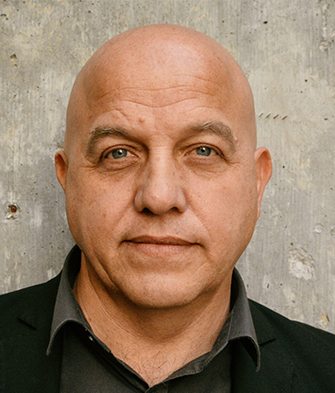 Alfonso Valenzuela-Aguilera, Visiting Professor
Alfonso Valenzuela-Aguilera, Visiting Professor
January – April 2021
Alfonso Valenzuela-Aguilera is Professor of Urban Planning at the University of Morelos, Mexico. His writing and teaching focus on the theoretical, conceptual and methodological dimensions of urban questions, with particular reference to the remaking of urban configurations under financial capitalism. A Fulbright and Guggenheim scholar, his work intersects with urban and regional planning policies and practice. He has held visiting professorships and chairs in several universities, including UT-Austin, IUAV-Venice, Rice University, University of Tokyo, UC-Berkeley, University of Calgary, University of Paris-Sorbonne and Massachusetts Institute of Technology. His most recent research has focused on the construction of safe environments and the impact of financial capital in the XXI century city. He is an author of several books on Urban History in Latin America. During his visitorship, he wrote a book on The Financialization of Latin American Cities published by Routledge. In addition to his research he will engage with planning students on issues around his recent work through teaching and various department events.
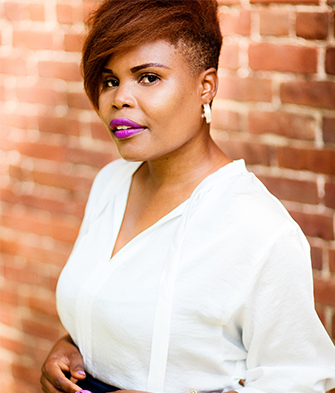 Jay Pitter, Visiting Scholar
Jay Pitter, Visiting Scholar
January – April 2020
Jay Pitter, MES, is an award-winning placemaker and author whose practice mitigates growing divides in urban centres across North America. Recently, Jay consulted on Edmonton’s heritage plan; co-developed the City of Toronto’s new shelter design guidelines, delivered a professional development process at UN Women headquarters in New York City; and led (RE)IMAGINING CHEAPSIDE, a Confederate monument placemaking process in Lexington, Kentucky. She is currently teaching an inclusive placemaking and planning course at the University of Detroit Mercy School of Architecture and has been named the John Bousfield Distinguished Visitor in Planning by the University of Toronto for the 2019-2020 academic year. In the upcoming months, Jay’s HER City project will engage women in public space audits and play. Her forthcoming book, Where We Live, will be published by McClelland & Stewart in 2020.
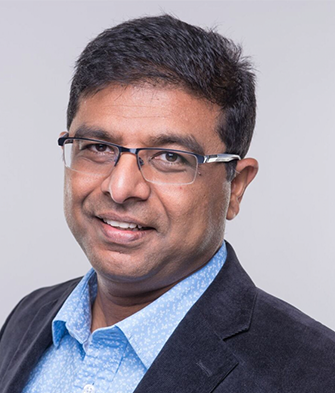 Sandeep Agrawal, Visiting Scholar
Sandeep Agrawal, Visiting Scholar
January – April 2020
Sandeep Agrawal is a Professor and Director of the School of Urban and Regional Planning at the University of Alberta. Dr. Agrawal is a well-known Canadian scholar in human rights and multiculturalism and how they intersect with urban and regional planning policies and practice. His most recent research has focused on human and indigenous rights, the nexus of energy and society, municipal annexation, and housing and homelessness in indigenous communities. He is an author of a book on planning in India, published by Oxford University Press, and is currently writing a book on the practice of rights to the city to be published by the University of Alberta Press. Based on his research projects on multi-culturalism, human rights, and planning, he will share his experiences with graduate planning students through teaching and various department events.
 Kofi Hope, Visiting Scholar
Kofi Hope, Visiting Scholar
January – April 2019
Dr. Hope’s academic training in Political Science in combination with his extensive community involvement as founder, and former executive director of, the Centre for Young Black Professionals (CEE) in Toronto, will allow him to engage with planning students on issues around the nexus of race and socioeconomic inequality in city building.
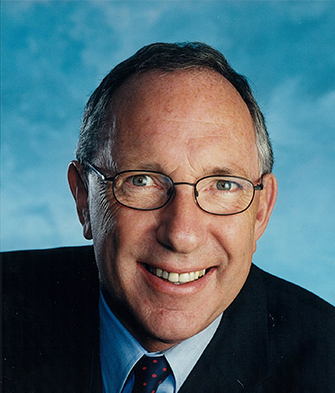 John Farrow, Visiting Professional
John Farrow, Visiting Professional
January – April 2019
John Farrow received a post graduate degree in Urban and Regional Planning from Oxford Polytechnic and an M.B.A. from the Schulich Business School in Toronto. He worked for the Boroughs of Rotherham and Chelsea managing social housing and for the City of Coventry as a member of the team planning the central area. John is an international consultant on city planning and management. He is Chairman Emeritus of the international infrastructure planning consultants, LEA Group Holdings, where he was CEO. Prior to that he led Canada’s premier Urban Policy think tank, the Canadian Urban Institute, and was the Managing Partner of The Coopers and Lybrand Consulting Group. He has prepared numerous masterplans for large cities and city regions and worked extensively in India, Central Europe, the Middle East, the United Kingdom and Canada. He is currently a member of a team preparing a masterplan for the capital of Oman. His primary research interest is how cities can respond faster to changing social and economic circumstances and utilize innovative approaches to providing infrastructure and services more effectively. His own experience has convinced him that a planning education provides the skills necessary for those who wish to play a larger role in shaping the future of cities. Therefore, in addition to his research he will introduce students to former planning graduates who will share their career experiences of working in a variety of fields.
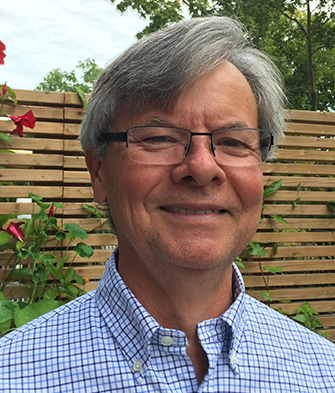 Dr. John Curry, Visiting Scholar
Dr. John Curry, Visiting Scholar
January – April 2018
John Curry is a retired professor and past Chair of the School of Environmental Planning at the University of Northern British Columbia. He has extensive Canada-wide experience working with small and medium size communities in the areas of economic, social, and ecological planning and development. Dr. Curry has worked both in the public and private sectors. In the private sector, he was President of both the Centre for Entrepreneurial Development and Curry, Curry and Associates. The latter was a Prince Edward Island firm which specialized in publishing and community economic development consulting. He was, for five years, Editor-in-Chief of Plan Canada, the professional journal of the Canadian Institute of Planners.
Dr. Curry returned to graduate school mid-career and completed a Ph.D. in 1995 at the University of British Columbia in the area of community sustainability. This area of research attempts to develop community and regional level planning and implementation processes which bring together ecological, social and economic issues. His research focused on: examining barriers to change towards sustainability; methods to incorporate principles of sustainability into rural and remote communities; climate change processes of adaptation at a community and regional level; and new venture and entrepreneurial development in First Nations and non-First Nations communities. The First Nations research was supported by the Social Sciences and Humanities Research Council (SSHRC).
Dr. Curry currently teaches the graduate planning course Sustainability and Urban Communities at the University of Toronto and the graduate Theory and Studio courses and the undergraduate Introductory Planning and Studio courses at Ryerson University.
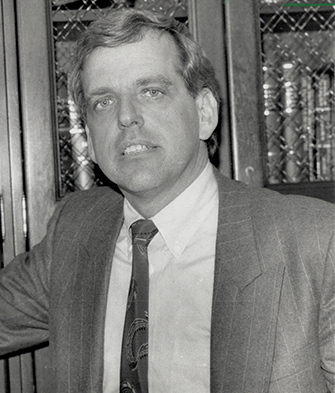 Stan Makuch, Visiting Professional
Stan Makuch, Visiting Professional
January – April 2018
Mr. Makuch is a Toronto municipal and planning law lawyer who also had an outstanding public and academic career. His legal career has consisted of extensive public and private sector experience. He was the municipal solicitor for three different municipalities in the Toronto area; he was special special counsel for the City of Toronto in the approval of its official plan before the OMB. He was retained by numerous other public bodies such as the City of Mississauga, the City of York, The University of Toronto, the Scarborough Public Utilities Commission, the Province of Ontario and the Government of Canada. His diverse practice in representing the private sector includes clients such as Brookfield Homes, Loblaws (IPCF), and Equifund, and Ringling Bros. Circus. He has been included in Best Lawyers in Canada for many years. This practice involved Mr. Makuch appearing before the Superior Courts including the Ontario Court of Appeal, the OMB and other planning and environmental decision making bodies. Mr. Makuch’s academic career includes experience as a Professor of Law and Planning at the University of Toronto, Acting and Associate Dean of the Faculty of Law of the University of Toronto, and author of numerous books and articles including: a text, “Canadian Municipal and Planning Law” which was relied on by the Supreme Court of Canada, and a recent article on “The Disappearance of Planning Law in Ontario”, UBC Press, 2016. His work has resulted in major changes to and enhancement in municipal powers. His public service includes serving on the City of Toronto Planning Board and Committee of Adjustment, The Metropolitan Toronto Board Of Police Commissioners, and the Provincial Police Complaints Board.
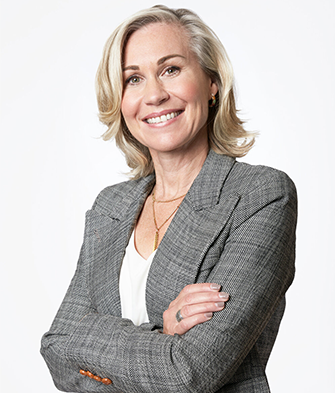 Jennifer Keesmaat, Visiting Professional
Jennifer Keesmaat, Visiting Professional
September 2017 – April 2018
Ms. Keesmaat is a graduate of the University of Western Ontario (double major in Politics and Planning) and York University Masters of Environmental Studies – (Urban and Regional Planning). Jennifer served as the Chief Planner for the City of Toronto from 2012 to 2017 and is perhaps best known for her advocacy of density, walkability, complete streets, and active transportation, as well as for a national urban agenda. While in residence, Jennifer had multiple points of contact with students and faculty including coffee-break/brown-bag sessions with planning students through the Fall term, and as the instructor of a graduate planning course in the Spring term, 2018.
Professor Norma Rantisi, Visiting Scholar
September – November 2016
Dr. Rantisi has a B.A. in Political Science from the University of Illinois at Chicago, an M.A. in Political Science from University of Illinois at Urbana-Champaign, an M.R.P. from the Department of City and Regional Planning at Cornell University, and a Ph.D. from the Department of Geography and Planning at the University of Toronto. Dr. Rantisi’s recent research has focused on the socio-spatial organization of the contemporary Montréal circus arts and apparel industries. In collaboration with Dr. Deborah Leslie of the University of Toronto, she is examining contemporary economic development policy and practice are shaping the evolution of these industries, and on how neo-liberal governance approaches are altering the nature and forms of work and the prospects for more equitable forms of development. Dr. Rantisi is also starting a project on Palestinian women’s artisanal cooperatives. Her broader interests pivot upon the geography and social organization of cultural industries; restructuring in traditional manufacturing industries; local economic development policy; workforce development; and social economy enterprises.
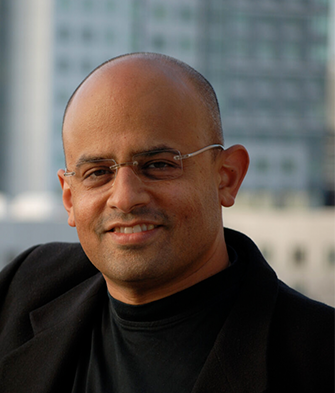 Professor Aseem Inam, Visiting Scholar
Professor Aseem Inam, Visiting Scholar
August 2015 – July 2016
Aseem Inam is Director of TRULAB: Laboratory for Designing Urban Transformation, Associate Professor of Urbanism at Parsons The New School for Design, and Fellow at the Center for Ethics and Transformative Values at MIT.
Dr. Inam previously taught at MIT, where he received the Excellence in Teaching Award, UCLA, and the University of Michigan, where he received the Outstanding Faculty Award three times. He was the founding architect-in-charge of the Aga Khan Development Network’s rural habitat development program in Gujarat, India. Most recently he was a project leader for urban design and planning projects in California, the Caribbean, Idaho, and New Mexico with the award-winning firm, Moule and Polyzoides Architects and Urbanists. Dr. Inam received a master’s degree in architecture from the former Ecole des Beaux Arts in Paris, a master’s degree in urban design from Washington University in St. Louis, and a Ph.D. in city planning from the University of Southern California in Los Angeles.
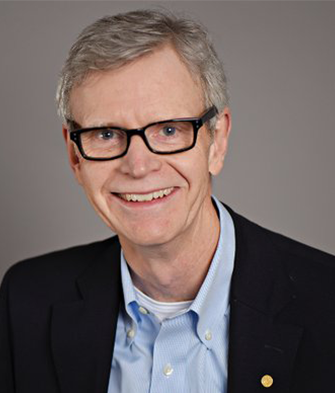 Rob Dowler, Visiting Professional
Rob Dowler, Visiting Professional
January – April 2016
Rob Dowler has 33 years of experience as a planner with the City of Ottawa, a housing planner with a Federal NGO and as a Policy ADM in several ministries of the Ontario Government. He has led a wide variety of planning and development initiatives and has been a member of several Boards, including the Ring of Fire Infrastructure Development Corporation, the Tarion New Home Warranty Corporation and the Technical Safety Standards Authority. He is a Registered Professional Planner, Professional Land Economist and a past Chair of the OPPI Planning Award Jury. Rob attended the Program in Planning in 1981-82 on a CMHC Scholarship and was an early recipient of the Ian MacPherson Award. More recently Rob completed a Strategic Management program at Harvard and obtained the ICD.D designation from Rotman. Rob is delighted to return to his alma mater to teach ‘The Planner’s Role in Supporting Public Decision-Making: Case Studies in Professional Practice’.
Professor Ann Markusen, Visiting Scholar
February – April 2015
Professor Markusen has served as a Brookings Institution Economic Policy Fellow and a Fulbright Lecturer in Brazil and has consulted for the Clinton Administration, the World Bank and the OECD. She has served as a consultant to the cities of Cleveland, Pittsburgh, Berkeley, and Chicago, and to the states of Michigan, Ohio, and California on industrial retention and economic development efforts. Her work on industrial development includes a major study of the mid-western steel industry, Betting on the Basics, for the City of Chicago, and a study on The California Software Industry for the California Commission on Industrial Innovation. Professor Markusen served as Senior Fellow at the Council on Foreign Relations in New York (1995-2002) and as an Executive Committee and Board member for the Economic Policy Institute (1994-2002). In October of 2000, she was appointed by the President and approved by the Congress to serve on the ten-member National Commission on the Use of Offsets in Defense Trade and its companion President’s Council on Offsets in Commercial Trade. In 1999, she complete two terms as Chair of the Committee on Science, Engineering and Public Policy at the American Association for the Advancement of Science, and in 2000, she served as President of the North American Regional Science Association. Markusen was a participant in President-elect Clinton’s Economic Summit in 1992. She is an economist and Fesler-Lampert Professor of Planning and Public Policy at the University of Minnesota’s Humphrey Institute of Public Affairs, where she also directs the Project on Regional and Industrial Economics. Professor Markusen received a Bachelor’s Degree in Foreign Service at Georgetown University and her M.A. and Ph.D. in Economics at Michigan State University, and has held faculty positions at the University of Colorado, University of California Berkeley, Northwestern and Rutgers Universities.
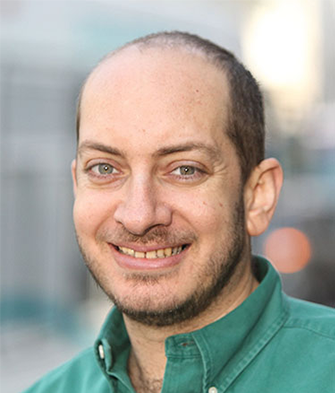 Professor Ahmed M. El-Geneidy, Visiting Scholar
Professor Ahmed M. El-Geneidy, Visiting Scholar
December 2014 – May 2015
Professor El-Geneidy’s research interests include land use and transportation planning, transit operations and planning, travel behavior analysis concentrating on the use of motorized and non-motorized modes of transportation, and measurements of accessibility and mobility in urban contexts. Ahmed has a special interest in measuring and understanding the transportation needs of the disadvantaged populations. He received B.S. and M.S. degrees from the Department of Architectural Engineering at the University of Alexandria, Egypt, and continued his academic work at Portland State University, where he received a Graduate GIS Certificate and earned a Ph.D. in Urban Studies for his dissertation titled “The use of advanced information technology in urban public transportation systems: An evaluation of bus stop consolidation policy.” After finishing his PhD in 2005 he moved to the Twin Cities to work as a post-doctoral research fellow at the University of Minnesota with David Levinson and Kevin Krizek. In August 2007 Ahmed moved to Montreal, Canada to start a tenure track position at the School of Urban Planning, McGill University, where he established the Transportation Research at McGill (TRAM) group. Professor El-Geneidy is currently serving as an editor for the Journal of Transport and Land use. He is also serving as a board member of the World Society on Transport and Land Use Research (WSTLUR) (2011 – 2013). He is a member of the Transportation Research Board (TRB) Committee on Public Transportation Planning and Development, AP025 (2011 – 2014; 2014 – 2017) and Public Transportation Marketing and Fare Policy, AP030 (2012 – 2015).
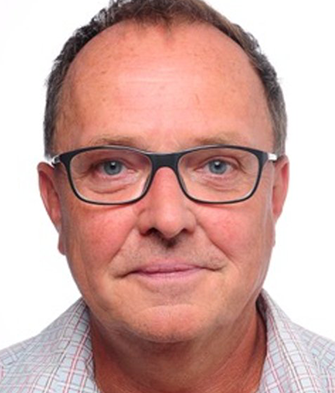 Dr. Thomas Buerk, Visiting Scholar
Dr. Thomas Buerk, Visiting Scholar
January – May 2014
Dr. Buerk is a senior lecturer from the Department of Geography at Humboldt University in Berlin. He is an interdisciplinary oriented researcher with broad interests in the constitution and progress of European social movements, the question of planetary urbanization and the interrelationships of people migrating and travelling around the world, be it as tourists, refugees, commuters, labourers or business people.
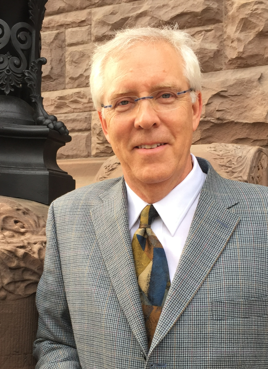 David MacLeod, Visiting Professional
David MacLeod, Visiting Professional
January – April 2014
Mr. MacLeod is a Senior Environmental Specialist at the City of Toronto where he is staff lead on climate change risk management. He works with City Divisions as well as various industry sectors and citizen groups to help increase resilience to extreme weather and the creeping effects of climate change. Prior to joining the City, Mr. MacLeod worked for 17 years as an environmental management consultant and auditor across Canada. David sits on the Program Advisory Council for Ryerson University’s Environment and Urban Sustainability Program and is a graduate of the University of Toronto’s collaborative Master’s program in Geography and Environment.
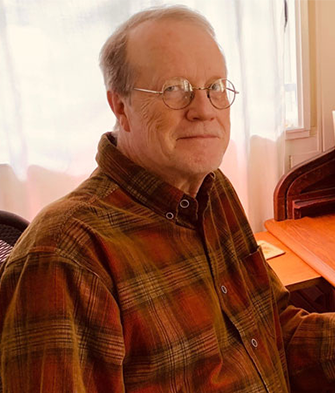 Professor Neil Sipe, Visiting Scholar
Professor Neil Sipe, Visiting Scholar
September – December 2013
Professor Sipe is the Program Director of Planning at the University of Queensland, Australia. He holds a PhD in Urban Planning from Florida State University and worked as an investment banker and economic consultant for ten years in the U.S. before joining Griffith University in Brisbane where he served as Head of the School of Environmental Planning and Deputy Director of the Urban Research Program. His research interests include energy security and patterns of oil vulnerability in urban areas, the influence of land use and urban form on travel behavior, corner stores and neighbourhood sustainability, and the role of mediation in resolving environmental and public policy disputes.
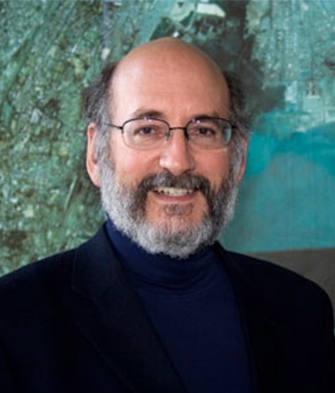 Professor Lawrence Vale, Visiting Scholar
Professor Lawrence Vale, Visiting Scholar
October 2013
Lawrence Vale is Ford Professor of Urban Design and Planning at MIT, where he served as Head of the Department of Urban Studies and Planning from 2002 until January 2009. He has taught in the MIT School of Architecture and Planning since 1988, and he is currently the director of the Resilient Cities Housing Initiative (RCHI), a unit of the School’s Center for Advanced Urbanism. He was president of the Society for American City and Regional Planning History for 2011-2013. Vale holds degrees from Amherst College (B.A. in American Studies, summa cum laude), M.I.T. (S.M.Arch.S.), and the University of Oxford (D.Phil.), which he attended as a Rhodes Scholar. Professor Vale is the author or editor of nine books examining urban design, housing and planning.
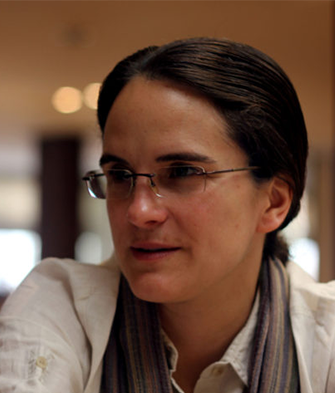 Lorena Zarate, Visiting Professional
Lorena Zarate, Visiting Professional
October 2013
Ms. Zarate is President of Habitat International Coalition (HIC). Before joining HIC in Mexico City in 2000, worked in Argentina for the Centre on Environmental Studies and Projects (Fundacion CEPA), the Latin American Forum for Environmental Studies (FLACAM) and the journal Environment (Revista Ambiente). Throughout her career, she has administrated numerous international projects in addition to publishing and speaking widely on many planning issues, including housing rights, social production and management of habitat and the right to the city.
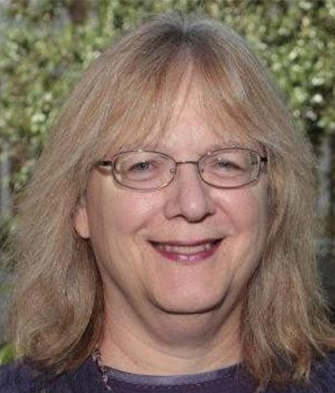 Professor Petra Doan, Visiting Scholar
Professor Petra Doan, Visiting Scholar
September – December 2012
Dr. Petra L. Doan is Professor of Urban and Regional Planning in the College of Social Sciences and Public Policy at the Florida State University. After earning a B.A. in Philosophy at Haverford College, Dr. Doan completed a Master of Regional Planning and a Ph.D. from the Department of City and Regional Planning at Cornell University in the field of International Planning. Previously a Senior Fulbright Scholar in Amman, Jordan for three consecutive summers: 1995-1997.
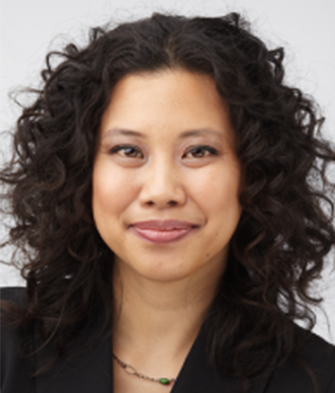 Karen Sun, Visiting Professional
Karen Sun, Visiting Professional
September 2011- April 2012
Ms. Sun is an environmental and social activist. She previously was the Executive Director of the Chinese Canadian National Council Toronto Chapter (CCNCTO), an organization dedicated to promoting human rights, social justice and equity for the Chinese community in Toronto. She also sits on or recently was on the boards of Heritage Toronto, the Working Women Community Centre, the Conservation Council of Ontario and the Chinese Interagency Network. Prior to working at CCNCTO, she was the Humber River Watershed Resources Planner at the Toronto and Region Conservation Authority. She has worked for the City of Toronto in Urban Forestry Services as an ecological restoration specialist andwas a member of Mayor Miller’s Roundtable on the Environment.. Ms. Sun has worked and volunteered for a number of environmental organizations including the Nature Conservancy of Canada, the Federation of Ontario Naturalists (now Ontario Nature), Citizen’s Environment Watch, the Toronto Bay Initiative, and the Quetico Foundation. She is an MScPl graduate from the Department of Geography & Planning.
Punam Khosla, Visiting Scholar
September 2011 – August 2012
Lecturer, Writer, Scholar-Activist.Currently writing a dissertation re-theorizing the material intersections of gender, race and sexual dispossessions, appropriations and everyday violence. Focus on social, urban, marxist, postcolonial and antiracist feminist thought in the Faculty of Environmental Studies at York University.
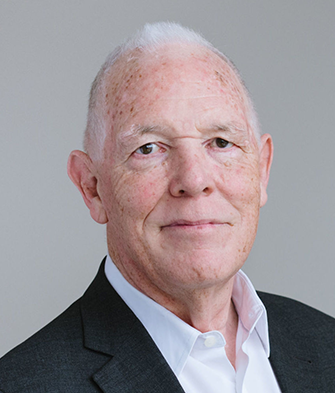 Joe Berridge, Visiting Professional
Joe Berridge, Visiting Professional
January – April 2012
Mr. Berridge (Partner at Urban Strategies Inc.) is an urban planner and city builder who has had an integral role in the development of some of the largest and most complex urban planning and regeneration projects in Canada, the U.S., the U.K., and Asia. He has been strategic planner for the development of the city centres of Manchester, Belfast and Cardiff and heavily involved in the master planning for the waterfronts of Toronto, Singapore, Cork, London’s East Docklands, San Juan, Puerto Rico and Governors Island in New York City. He has prepared campus master plans for the University of Waterloo, Queen’s and Western University. Joe played an important role in helping form the growth management and transportation plans for the Toronto region. He is a regular media commentator and writer on urban issues.
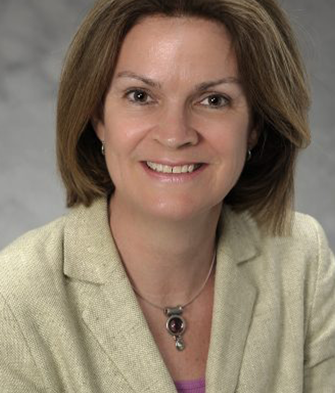
Lori Martin, Visiting Professional
January – April 2012
Lori Martin, Senior Cultural Affairs Officer, City of Toronto. As an urban planner, Lori Martin has worked on the adaptive reuse of industrial heritage buildings for cultural purposes such as the Artscape Wychwood Barns, Evergreen Brick Works and the John Street Roundhouse. Lori was an expert witness at the Ontario Municipal Board hearing regarding the West Queen West neighbourhood. More recently, Lori was a strategic contributor to a multi-departmental city team that successfully negotiated the Mirvish+Gehry redevelopment that retains the Princess of Wales Theatre, heritage warehousing and non-residential uses.
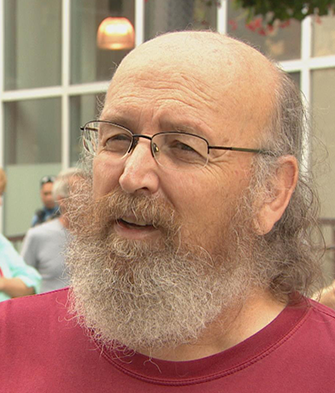
Gaetan Heroux, Visiting Professional
September 2011 – April 2012
Mr. Heroux is an anti‐poverty activist with the Ontario Coalition Against Poverty (OCAP) and an Identification Outreach Worker with the Street Health Community Nursing Foundation. For the last twenty years he has worked with homeless and low‐income people in East Downtown Toronto, has served on a number of steering committees related to poverty, homelessness and violence and has been a featured speaker at public events, panel discussions, rallies and workshops on poverty in cities across Ontario and Quebec.
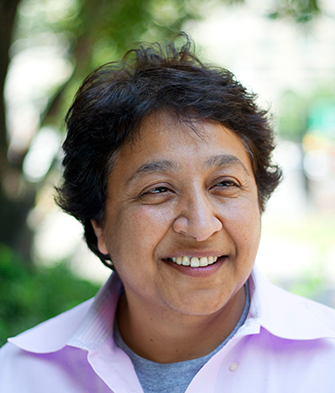
Uzma Shakir, Visiting Professional
March 2010
Uzma Shakir is Director of the Office of Equity, Diversity, and Human Rights with the City of Toronto. She has served as the Executive Director of Council of Agencies Serving South Asians (CASSA), and the South Asian Legal Clinic of Ontario (SALCO). From 2008–2010, she was an Atkinson Economic Justice Fellow. Ms. Shakir received a B.A. degree from Karachi University in Karachi; a B.A. Honours degree from Sussex University; and a Master of Law and Diplomacy degree from the Fletcher School of Law and Diplomacy at Tufts University. Her work focused on issues of race, erosion of civil liberties, and critical multiculturalism. She has been a community-based researcher, an advocate, an organizer/facilitator, a writer, and a lecturer on diverse issues facing racialized communities.
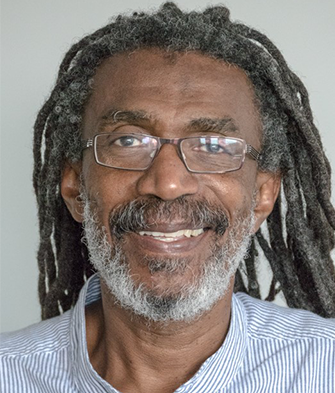
Dr. Winston Husbands, Visiting Professional
2009
Winston Husbands is the Director of Research at the AIDS Committee of Toronto. He is an adjunct lecturer at the U of T Dalla Lana School of Public Health, and the recipient of the Ontario AIDS Network Community Partner Award. His previous assignments include co-chair of ACCHO for five years, where his contributions focused on implementing the strategy on HIV for African and Caribbean communities in Ontario. A geographer by inclination, he graduated in geography from the University of the West Indies in Jamaica, and holds a PhD in economic geography from the University of Western Ontario. For close to 10 years he taught in the geography departments at the University of Zambia and Ryerson University
Norma-Jean McLaren, Visiting Professional
September 2008 – April 2009
Norma-Jean McLaren is a consultant, trainer and facilitator working in the area of diversity, community development and organizational change since 1986. She holds a B.A. in Child Care Counseling and an MA in Education (Multiculturalism in Education). In 1992 she established her own consulting company and in that capacity has worked in training, consultation and facilitation in a broad range of settings including: colleges, school districts, hospitals, universities, police departments, airport security, resource corporations, federal and provincial departments and crown corporations, non-profit agencies and in communities across Canada. Her love of small communities takes her to the north and interior of B.C. and Alberta. Her work of over a decade with the Police Academy of the Justice Institute of BC has led her to co-producing a training film for police recruits on the relationship between police and First Nations (avail fall 2009). Her field encompasses cross-group relations and development of cross-cultural communication and understanding, addressing issues of human rights, harassment, diversity and anti-racism. Her facilitation and consultation work includes research, evaluation, curriculum development, strategic planning and vision building for organizations and communities. She is on the board of the newly formed Downtown Eastside Centre for the Arts.
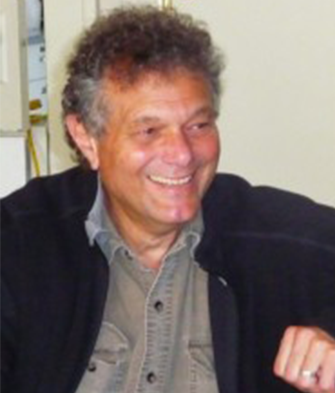
Nathan Edelson, Visiting Professional
September 2008 – April 2009
Nathan Edelson is a Senior Partner with 42nd Street Consulting which supports inclusive planning for diverse communities. He has worked on projects linking government and community organizations in a variety of settings including Delta, Fort Saint John, Haida Gwaii, Johannesburg, Regina, Sao Paulo, Toronto and Vancouver. He is also an Adjunct Professor with the University of British Columbia’s School of Community and Regional Planning and a Bousfield Distinguished Visiting Scholar at the University of Toronto. He was Planner with the City of Vancouver Planning Department from 1983 to 2008. For 15 years, he was the senior planner focusing on the many challenging issues facing the Downtown Eastside – including historic Chinatown, Gastown, Strathcona and Victory Square. Prior to that, he was the planner for Downtown South, Granville Street and the Joyce Station SkyTrain Area (Collingwood Village). He also led initiatives on the Central Area Plan, Secondary Suites and Liquor Licensing Policy. Before joining the City, Nathan was the founding Executive Director of Little Mountain Neighbourhood House.
